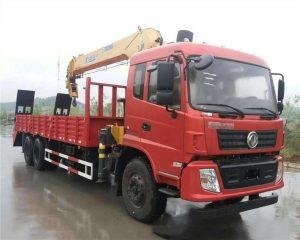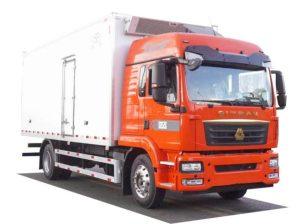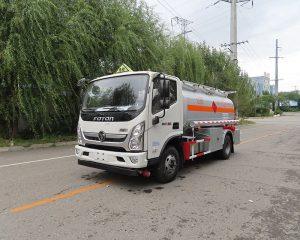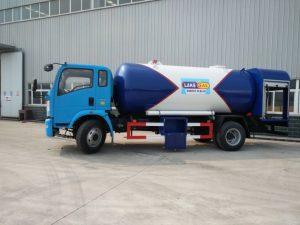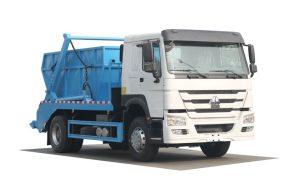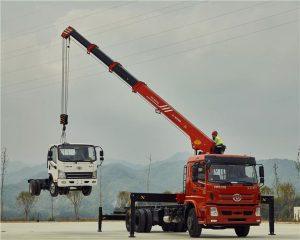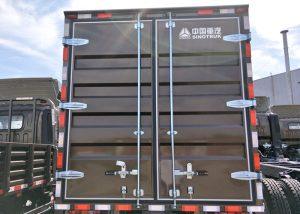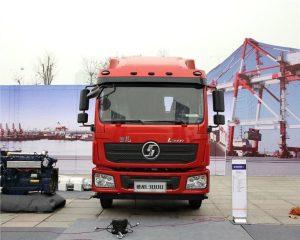Monday to Saturday - 8:00 -17:30
Water Hauling Trailers: A Comprehensive Guide
Water hauling trailers are essential tools for transporting large volumes of water efficiently. Whether you are in agriculture, construction, or emergency services, understanding these trailers can greatly enhance your operations. This article will delve into the various aspects of water hauling trailers, including types, uses, maintenance tips, and much more.
What is a Water Hauling Trailer?
A water hauling trailer is a specialized vehicle designed to transport water from one location to another. These trailers are equipped with tanks that can range in size, typically from a few hundred gallons to several thousand gallons. They can be towed by different types of vehicles, including trucks and SUVs, depending on the capacity of the trailer.
General Features of Water Hauling Trailers
Some common features of water hauling trailers include:
- Tank Material: Most tanks are made of durable polyethylene or steel.
- Pump System: Many trailers come with a pump to facilitate quick loading and unloading.
- Hoses and Fittings: These trailers often include hoses and fittings for connection to various water sources or delivery locations.
- Brakes and Safety Features: Safety is paramount; many trailers are equipped with brakes and reflectors to ensure proper handling on the road.
Types of Water Hauling Trailers
There are several types of water hauling trailers designed for different applications. Here are some of the most common types:
1. Standard Water Trailers
Standard water trailers are generally used for agricultural applications and can range from 500 to 3,000 gallons. They are versatile and can be used for irrigation, livestock watering, and more.
2. Fire Water Trailers
These trailers are specifically designed for firefighting activities. They often include high-pressure pumps and hose reels, making them suitable for both rural and urban areas where water access might be limited.
3. Construction Water Trailers
Construction water trailers are built to supply water for dust control, concrete mixing, and other construction-related activities. They typically have larger capacities to meet daily construction needs.
4. Recreational Water Trailers
For recreational purposes, these trailers are often used for campsites, events, or family outings. They usually come with comfortable features, such as built-in water filters and easy access taps.
5. Emergency Response Trailers
These specialized trailers are used in emergencies, offering quick access to water during natural disasters or crises. They are equipped with fast discharge systems for rapid deployment.
Applications of Water Hauling Trailers
Water hauling trailers serve multiple sectors, making them a valuable investment across various industries.
Agricultural Use
Farmers rely on water hauling trailers for irrigation, especially in areas lacking a water supply. They ensure a steady supply of water, which is critical for crop health and livestock maintenance.
Construction Sites
Construction projects often create dust, and water trailers are essential in controlling it. They also provide water for mixing cement and other materials, ensuring that work progresses without delays.
Firefighting
Fire departments utilize water hauling trailers in rural areas where hydrants might not be available. These trailers can be quickly transported to the site of a fire to provide a crucial water supply.
Recreational Activities
For camping trips or outdoor events, water trailers can enhance comfort by providing fresh drinking water and facilities for washing up.
Choosing the Right Water Hauling Trailer
Selecting the best water hauling trailer involves several considerations. Here’s what you should take into account:
1. Capacity
Determine how much water you will typically need to transport. Trailers range from 250 to over 5,000 gallons.
2. Material
Choose between plastic or metal tanks. Plastic is lightweight and resistant to rust, while metal offers durability and puncture resistance.
3. Pumping System
Assess whether you need a gravity flow system or a pump system. Pump systems are generally faster and more efficient.
4. Portability
Consider the weight of the trailer when loaded. Make sure your towing vehicle can handle the weight safely.
5. Cost
Budget is a crucial factor. The price of water hauling trailers varies based on their features and capacity.
Maintenance Tips for Water Hauling Trailers
Proper maintenance will extend the life of your water hauling trailer. Here are some essential tips:
1. Regular Inspections
Check for leaks, rust, or damage to the tank and towing components regularly.
2. Clean the Tanks
Ensure the tanks are washed out periodically to avoid algae growth and contamination.
3. Monitor the Pump System
Keep the pump components clean and in working condition. Replace any worn parts as necessary.
Table: Maintenance Checklist
| Task | Frequency |
|---|---|
| Inspect Tank & Frame | Monthly |
| Clean Tank Interior | Bi-Annually |
| Test Pump Functionality | Monthly |
| Check Tires & Lights | Before every use |
4. Store Properly
When not in use, store the trailer in a dry, protected area to avoid weather-related damage.
Regulations and Safety Considerations
When operating water hauling trailers, it’s crucial to be aware of local regulations. Here are some key points:
1. Licensing and Registration
Check if your local regulations require the trailer to be registered or if a special license is needed.
2. Weight Limits
Ensure that your towing vehicle adheres to weight limits when the trailer is fully loaded.
3. Safety Features
Always ensure the trailer has proper safety features, including brakes and reflective markings.
Cost Factors for Water Hauling Trailers
The price of water hauling trailers can widely vary. Here are some factors that influence their cost:
1. Size and Capacity
Generally, larger tanks come with higher price tags due to increased material and manufacturing costs.
2. Material
Plastic tanks are typically cheaper than steel, but durability comes at a premium.
3. Additional Features
Trailers with advanced features such as specialized pumps, hoses, and filtration systems will cost more than basic models.
Practical Examples of Use
Consider these real-life scenarios where water hauling trailers serve critical functions:
1. Agricultural Irrigation
A farmer uses a 1,500-gallon water hauling trailer to irrigate crops during dry spells, ensuring maximum yield while conserving water resources.
2. Emergency Response in Wildfires
During fire season, local fire departments deploy custom-built water trailers to supply water rapidly to remote wildfire sites, combining mobility and effectiveness.
3. Construction Projects with Dust Control
A constructor uses a 2,000-gallon trailer to control dust on-site, enabling a safer working environment while complying with environmental regulations.
Frequently Asked Questions (FAQ)
1. How much water can a trailer hold?
Water hauling trailers come in various sizes, holding anywhere from 250 gallons up to 5,000 gallons or more, depending on the model.
2. Can I use a water trailer for drinking water?
Yes, many water trailers are NSF-approved for drinking water, but ensure proper cleaning and maintenance are followed.
3. What towing capacity do I need for a water trailer?
Your towing vehicle should have a capacity that exceeds the total combined weight of the loaded trailer for safe towing.
4. Are water trailers expensive to maintain?
Maintenance costs can be minimal if regular inspections and cleaning are performed, making them a cost-effective tool.
5. Do I need a special license to tow a water trailer?
Licensing requirements can vary by state or country; check local laws to determine if special licensing is necessary.
6. Can I modify my water trailer?
Yes, many users customize their trailers to better suit their specific needs, including adding upgraded pumps or filtration systems.


